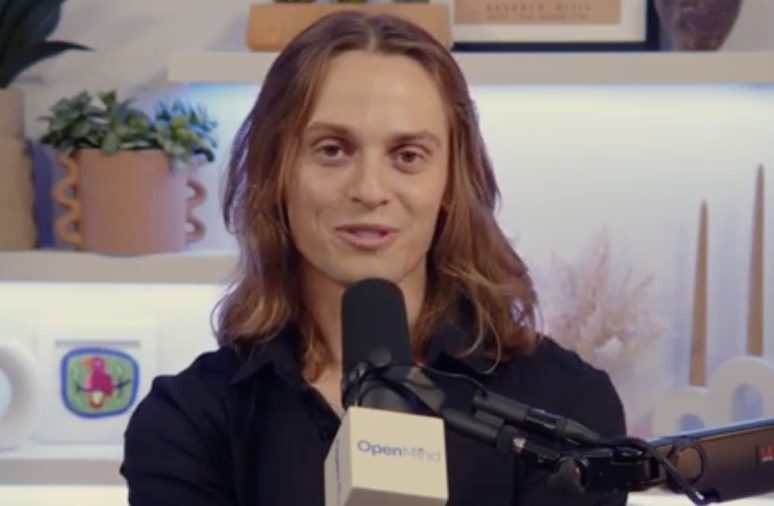The Evolving Definition of a Podcast
I no longer think of podcasts as just audio content. I think of them as shows. This distinction is crucial because it changes how we approach creation, distribution, and monetization.
At Pave, we’re building around what I call the PAVE ecosystem:
- Podcasts (audio)
- Audiobooks
- Video
- Experiences (live events, merchandise, etc.)
This approach recognizes that modern content consumption happens across multiple formats and platforms. When we launch a show now, we don’t just ask “is it audio or video?”—we ask “how does this content best serve its audience across all potential touchpoints?”
Take our new show, “Clues,” with Morgan Absher and Caitlin Moore, as an example. It’s designed as a video-first experience, but with a carefully crafted audio component. This dual-format approach allows us to meet audiences where they are, whether that’s on YouTube, Spotify, or traditional podcast platforms.
The Platform Revolution
Distribution is becoming increasingly important for podcasters. We’re seeing major platforms like X (formerly Twitter), Netflix, and other streaming services entering the podcasting space. This is fantastic news for creators because more buyers in the marketplace means more opportunities.
Our recent partnership with Khloe Kardashian to launch her podcast on X represents this new frontier. For streamers like Netflix, podcasts offer an attractive proposition: they help reduce subscriber churn by increasing platform engagement at a fraction of the cost of producing original films or TV shows.
I believe we’re on the cusp of massive investment in podcasting from these platforms over the next 36 months. The economics simply make too much sense—podcasts deliver more engagement per dollar than almost any other content format.
Building Community, Not Just Content
When I think about live touring for podcasts, I don’t view it primarily as a revenue stream—I see it as community building. Having attended Alex Cooper’s live tour, what struck me wasn’t just the ticket sales but the connections forming between fans. People were taking photos together, bonding over shared interests, and feeling part of something bigger than themselves.
This is what makes podcasting special. As a creator, you might see your download numbers and think “that’s cool,” but there’s something magical about seeing thousands of people show up at a venue because of a community you helped build.
For new podcasters wondering how to achieve those $100 million deals we’re seeing in the industry, my advice is simple:
- Be intentional about who you are and the community you’re building
- Create an “always-on” show (ideally weekly) rather than a limited series
- Develop a format that stands out from the crowd
- Make sure people are tuning in for YOU, not just your guests
- Stick with it through the inevitable challenges
Success won’t happen overnight. It takes years of consistent effort. However, what I’ve noticed is that something special happens around the 12-episode mark, and again around the 20-episode mark. Trust builds with each release, and eventually, your audience becomes loyal.
The Future Belongs to the Intentional
In today’s crowded landscape, being intentional about your content is more important than ever. At Pave, we’re very selective about the shows we launch. We’re not trying to be a network with hundreds of loosely affiliated shows—we’re building focused brands like Crime House and Open Mind that serve specific communities.
This approach enables us to delve deeper with creators, brands, and storytelling. When you have millions of podcasts competing for attention, you need to stand for something specific.
For creators considering launching their networks, my advice is first to achieve real scale—at least 3-5 million downloads per month—before expanding. Until then, focus on making your primary show exceptional. Things compound over time, and once you have attention, business opportunities will naturally come to you.
The podcasting industry is at an inflection point. While many are trying to optimize for the past, the real opportunity lies in building for the future. That’s what excites me about Pave—we’re creating the next evolution of what a podcast can be in this new era of media consumption.







